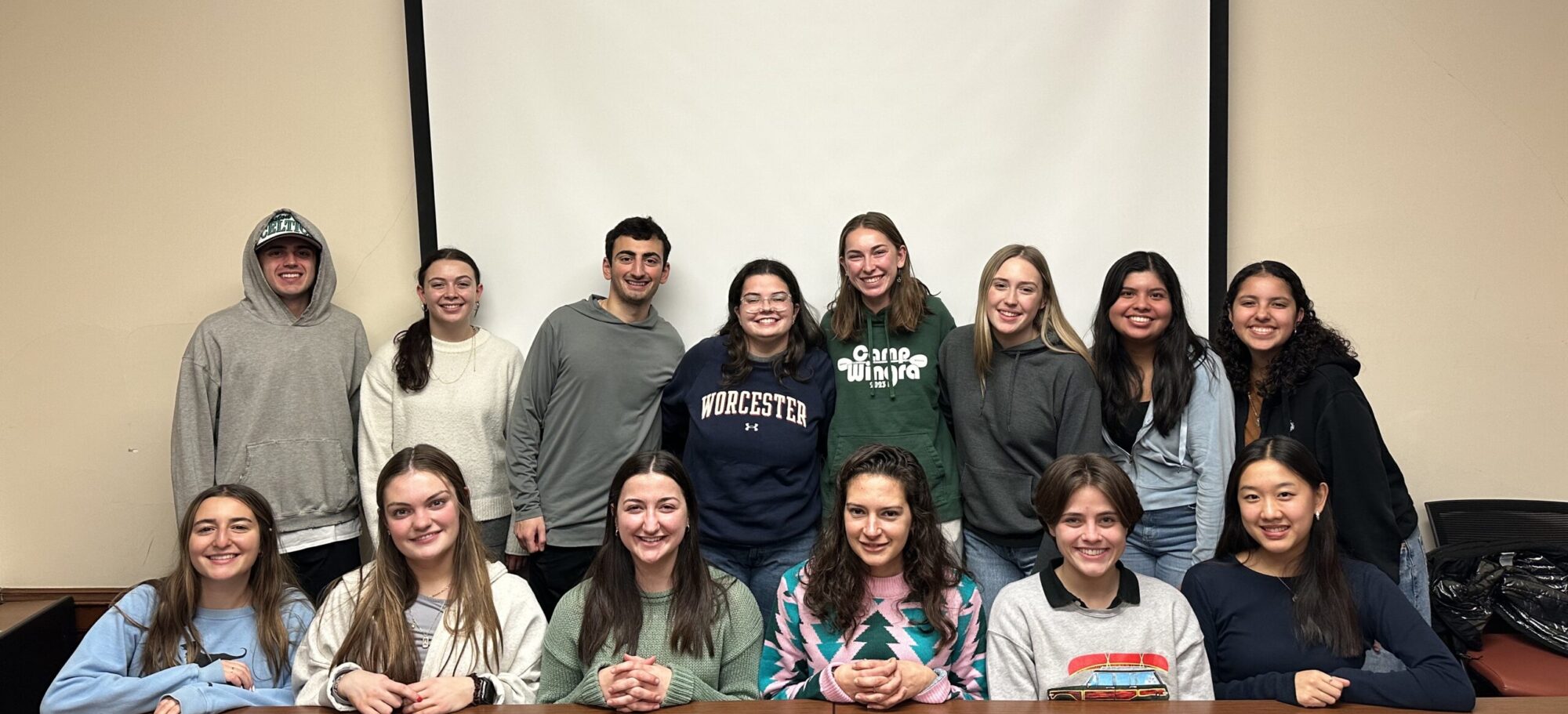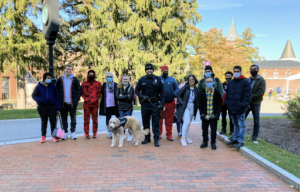It’s hard to believe that an entire school year has gone by on Mt. St. James! As I reflect on my sophomore year of college, which has been full of new friends, experiences, and discoveries, I think that being a part of the CBL Intern Program has been a monumental and formative part of my journey at Holy Cross. I remember moving into school in August and being nervous to meet the other interns and what being an intern would actually entail, but all of that anxiety went away as I was welcomed with open arms by Isabelle, Mattie, and the rest of the CBL Interns. Since then, I’ve made friendships with my fellow interns that will last a lifetime and memories at my CBL sites that I will hold onto forever.
During my first semester, I was fortunate enough to be enrolled in a CBL course focused on Latin-American culture. For my CBL component, I chose to volunteer with Ascentria Care Alliance, where I tutored unaccompanied refugee minors from various locations in Central and Latin America. I was originally very nervous to tutor native Spanish-speaking students because I’m not super confident with my language skills and I was afraid that I wouldn’t be able to fully communicate with the students and help them. Though the language barrier and the virtual format of our site was challenging, I felt like I overcame my anxiety once I was able to spend one-on-one time with the students and be able to help them with their individual needs. It was a very rewarding and mutualistic experience to be able to help the students learn English while they were helping me learn Spanish. I feel like I was able to reflect on my privilege of having English as my first language, and my eyes were opened up to social justice issues within the education system since the students at Ascentria were forced to learn and socialize in English and didn’t receive adequate learning resources for the language. I also was able to apply what I was experiencing at CBL to what I was learning in the classroom. Much of our class centered on social justice issues and history of Latin American countries as well as the traumatic and difficult experience of migration to the United States. Therefore, I was able to approach my interactions with Ascentria students with an approach of knowledge, care, and sensitivity, which allowed me to form lasting connections with them.
During my second semester, I wasn’t in a CBL class so I had completely free choice of where I wanted to volunteer for the first time! I chose to work with the Worcester Public Schools Transition Program where I spent time and led activities with 18-22 year old students with intellectual disabilities. Ever since I took my Montserrat class called “Identity, Diversity, and Community” with Professor Ryan, I’ve developed a passion for disability studies, so I was very excited to explore that through CBL. I volunteered on Thursdays, which was the Spanish-speaking students day, so again I was a little nervous to use my Spanish-speaking skills. However, the students and assistants were so welcoming and understanding and I immediately felt comfortable around them. I was really excited to utilize the Marshall Fund for the first time and saw my ideas come to life when we all participated in a bracelet making project. My favorite part of the semester was getting to know the students and all of their personalities and stories. For one of my classes, I wrote a reflection on the story of Jesus healing a man with a withered hand in the Gospel of Matthew and I related it to my personal life by connecting it to my CBL experiences. Here’s an excerpt from that paper:
Every Thursday, I spend two hours with Spanish-speaking eighteen to twenty-two year old students with intellectual or developmental disabilities, who have a large range in their functioning and verbal communication. Because of the pandemic, the students come to Holy Cross and I usually partake in some kind of game or activity with them and then we eat lunch in Crossroads and play a game of pool. At Crossroads, I am often struck when I observe how Holy Cross students typically react when they see the WPS students eating lunch at their school – with surprise, avoidance, or even snickering. In these moments, I find myself reflecting on my own privilege as an able-bodied student attending a college that has a mostly able-bodied population and does not have a very accessible campus to those with disabilities. Again, I try to channel Jesus’s example in my interactions with the students in hopes that Holy Cross students will view them as equals and draw closer to them instead of backing away. When one of the students, Jahzeel, reaches out for a fistbump as he usually does to everyone in his near vicinity, I stretch my hand out back eagerly, feeling “restored” as I watch the mutual smiles and giggles on our faces (Matthew 12:13). The smiles spread wider when I see Jahzeel stretch his hand out to a Holy Cross student and he doesn’t get ignored as often happens. I watch stretched hands meet and recognition click in the Holy Cross student’s brain that we are all human and want to feel the positivity and belonging we receive in a fist bump.
Overall, I think what I will take away most from my first year as a CBL Intern are the relationships I made. Whether it was through spending time at my sites, leading class reflections, discussing my CBL experiences with Mattie, Isabelle, and the other interns, I truly feel like CBL has brought me closer to so many people. I’m extremely grateful to have had the opportunity to be a part of this program and feel like it is my home on campus and beyond.



